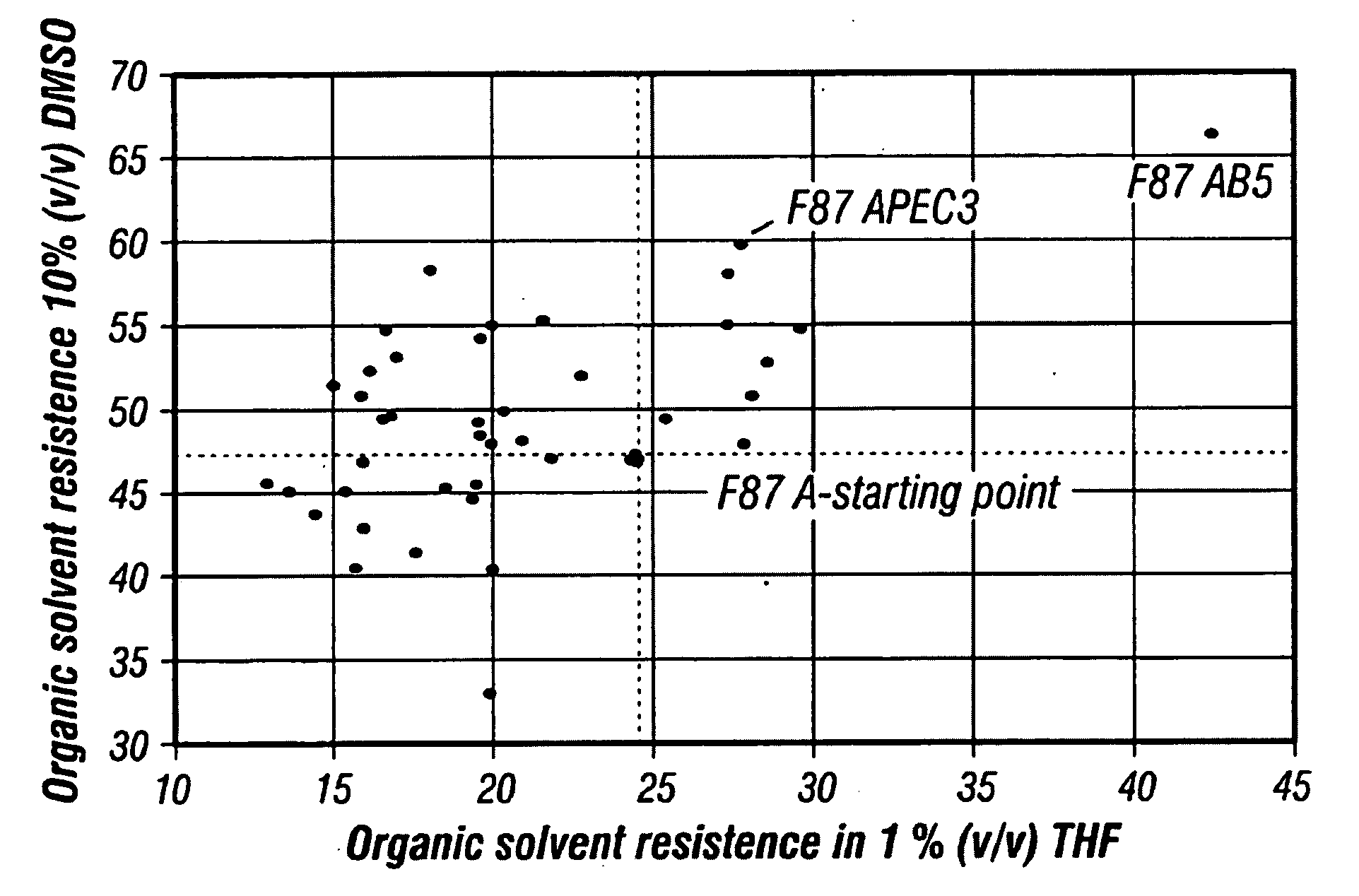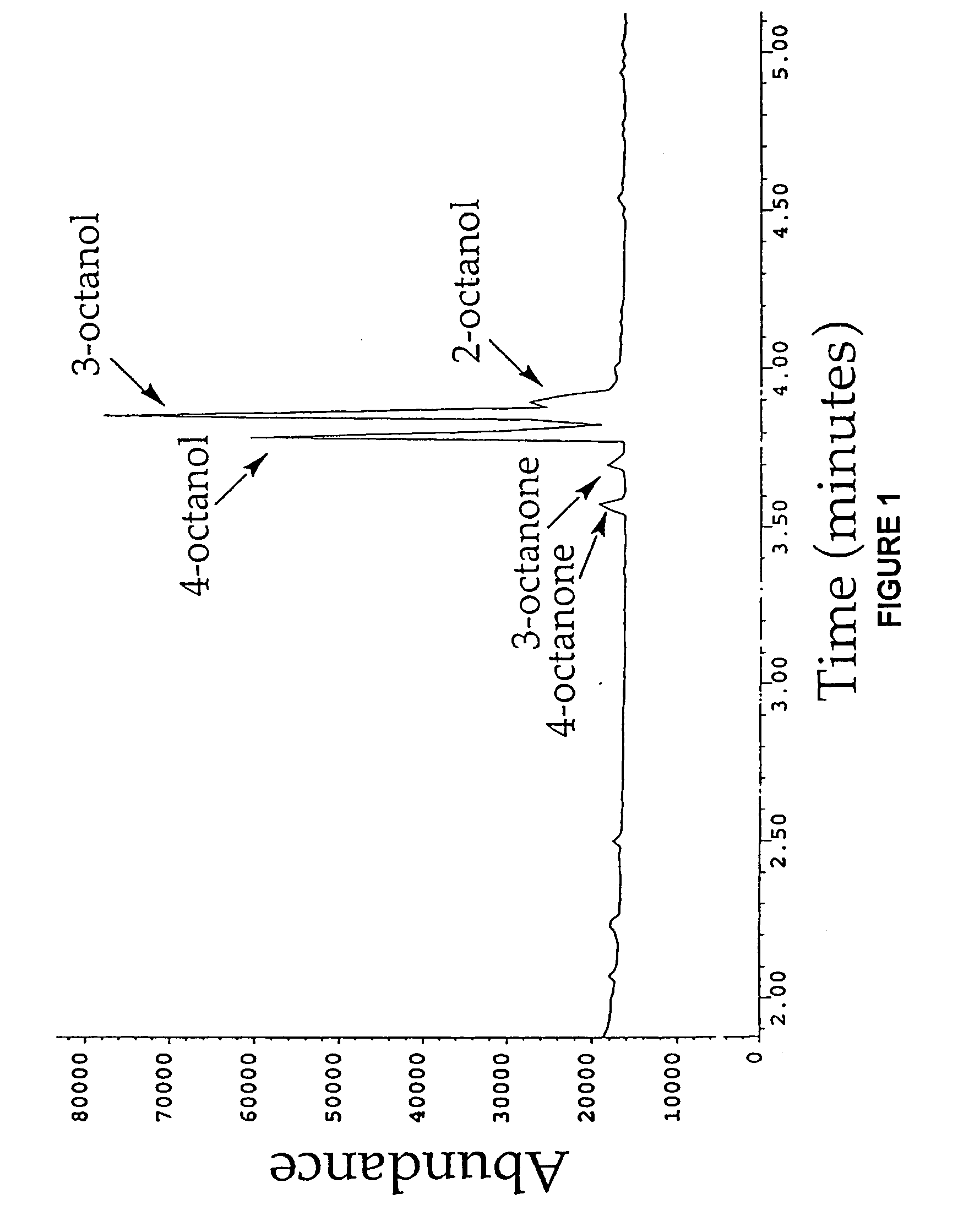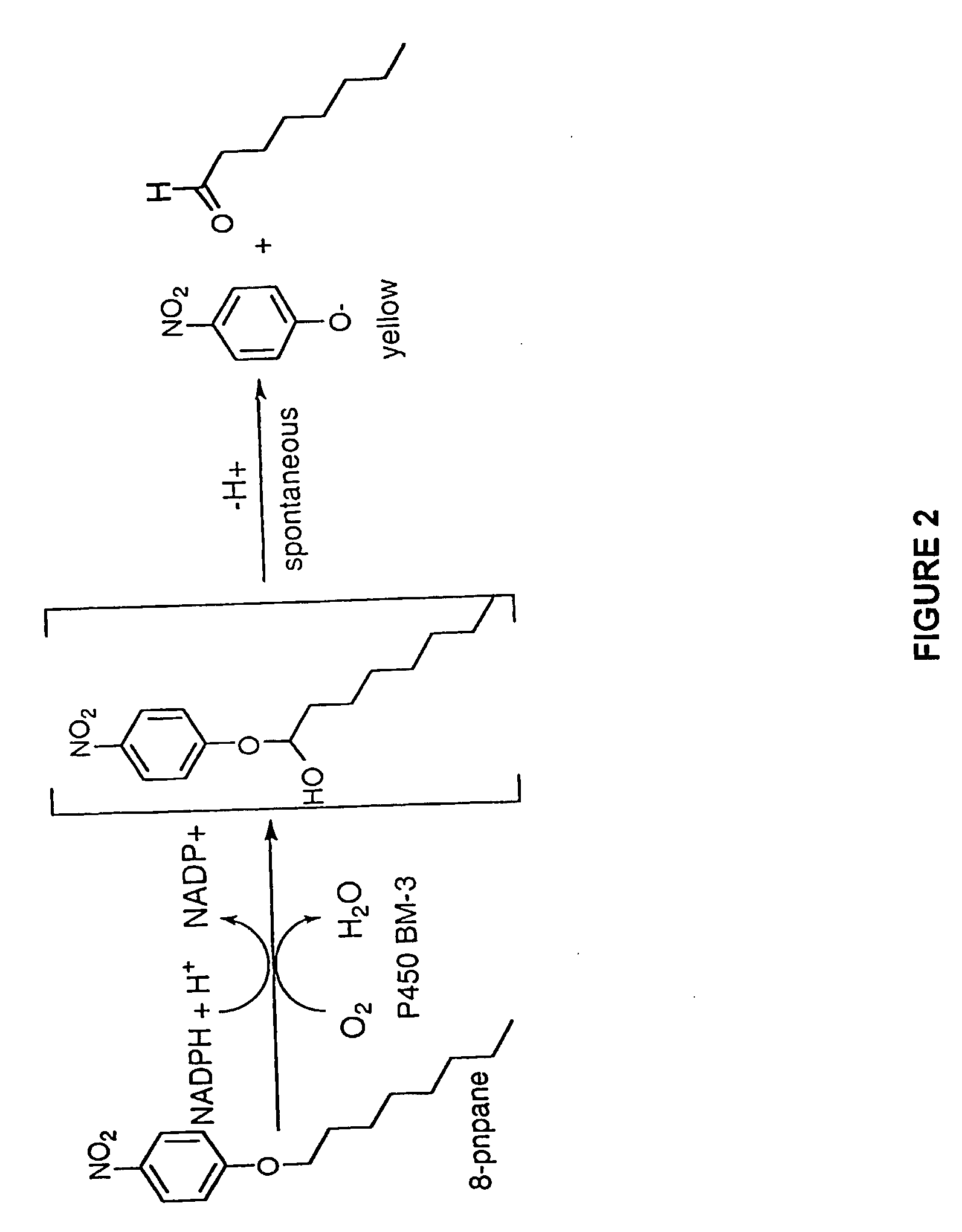Cytochrom P450 oxygenases
a technology of cytochrome p450 and oxygenase, which is applied in the field of cytochrome p450 bm3, can solve the problems of difficult chemical obstacles in activating their c—h bonds, the challenge of contemporary catalysis is the controlled oxidation of hydrocarbons, and the challenge of contemporary chemistry is the control of hydrocarbon oxyfunctionalization, so as to improve the stability of organic co-solvents, improve the stability of alkane oxidation
- Summary
- Abstract
- Description
- Claims
- Application Information
AI Technical Summary
Benefits of technology
Problems solved by technology
Method used
Image
Examples
example 1
Directed Evolution of a Cytochrome P450 Monooxygenase for Alkane Oxidation
[0094]This Example describes the discovery of P450 BM-3 variants. P450 BM-3 variants were created and identified by directed evolution techniques, specifically iterative cycles of random mutagenesis and recombination, and functional screening.
[0095]All chemical reagents were procured from Aldrich, Sigma, or Fluka. Enzymes were purchased from New England Biolabs, Stratagene, and Boehringer Mannheim. The 1H NMR spectrum was recorded on a Varian 300 MHz nuclear magnetic resonance spectrometer with a Mercury console. Quantitative Technologies Inc. (Whitehouse, New Jersey) performed elemental analysis.
A. Random library Generation and Screening of P450 BM-3
[0096]P450 BM-3 modified to contain a His6 tag was amplified from pT-USC1 BM-3 (Schwaneberg et al., Anal Biochem 1999a, 269:359-366) by PCR techniques using a proofreading polymerase Pfu to introduce a BamHI upstream of the start codon and an EcoRI site immediatel...
example 2
Directed Evolution of a Cytochrome P450 Monooxygenase for Organic Solvent Resistance
[0151]The total activity of P450 BM-3 in 96-well plates is relatively low, especially in the presence of an organic solvent that further reduces the fraction of active enzymes. The mutant F87A converts the 12-pNCA substrate 4-5fold faster than the wild-type, the Km value is 1.5-fold lower, and the chromophore from 2-pNCA substrate is released completely and not only to 33% (Farinas, 2001; Schwaneberg, 1999a). Therefore, the F87A mutant and not the wildtype was used as a starting point of the in vitro directed evolution. The evolutionary experiment to discover more organic solvent resistant variants was performed under very restrictive conditions in order to preserve the valuable properties of the parents, a for monooxygenases remarkably high total activity and thermostability. The thermostability was under selective pressure by using the temperature inducible PRPL-promoter system, and only clones tha...
example 3
Investigations of Solvent Conditions and Substrates for P450 BM-3 Mutant IX139-3
[0167]Cytochrome P450 BM-3 from Bacillus megaterium (Bodupalli et al., 1990) (P450 BM-3), a medium-chain (C12-C18) fatty acid monooxygenase, has been converted into a highly efficient catalyst for the conversion of alkanes to alcohols (See Example 1). The evolved P450 BM-3 exhibits higher turnover rates than any reported biocatalyst for selective oxidation of hydrocarbons. Unlike naturally-occurring alkane hydroxylases, among the best known of which are the large, membrane-associated complexes of methane monooxygenase (MMO) and AlkB, the evolved enzyme is water soluble and does not require additional proteins for catalysis. The evolved alkane hydroxylase was found to have even higher activity on fatty acids, the presumed biological substrates for P450 BM-3, which was already one of the most efficient P450s known. A broad range of substrates that includes the gaseous alkane propane induces the low to high...
PUM
| Property | Measurement | Unit |
|---|---|---|
| pH | aaaaa | aaaaa |
| temperature | aaaaa | aaaaa |
| pH | aaaaa | aaaaa |
Abstract
Description
Claims
Application Information
 Login to View More
Login to View More - R&D
- Intellectual Property
- Life Sciences
- Materials
- Tech Scout
- Unparalleled Data Quality
- Higher Quality Content
- 60% Fewer Hallucinations
Browse by: Latest US Patents, China's latest patents, Technical Efficacy Thesaurus, Application Domain, Technology Topic, Popular Technical Reports.
© 2025 PatSnap. All rights reserved.Legal|Privacy policy|Modern Slavery Act Transparency Statement|Sitemap|About US| Contact US: help@patsnap.com



